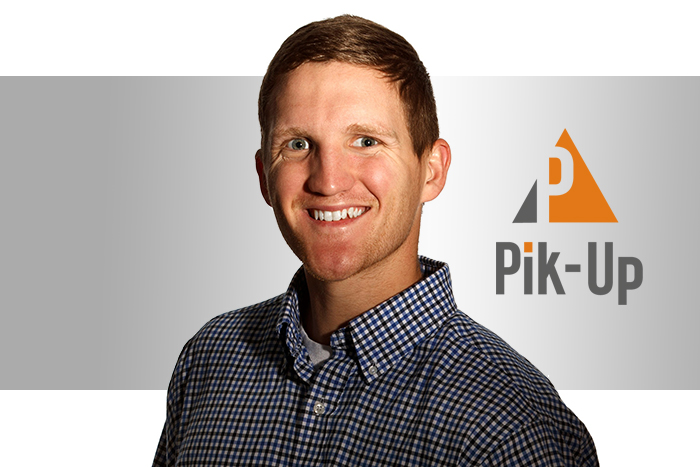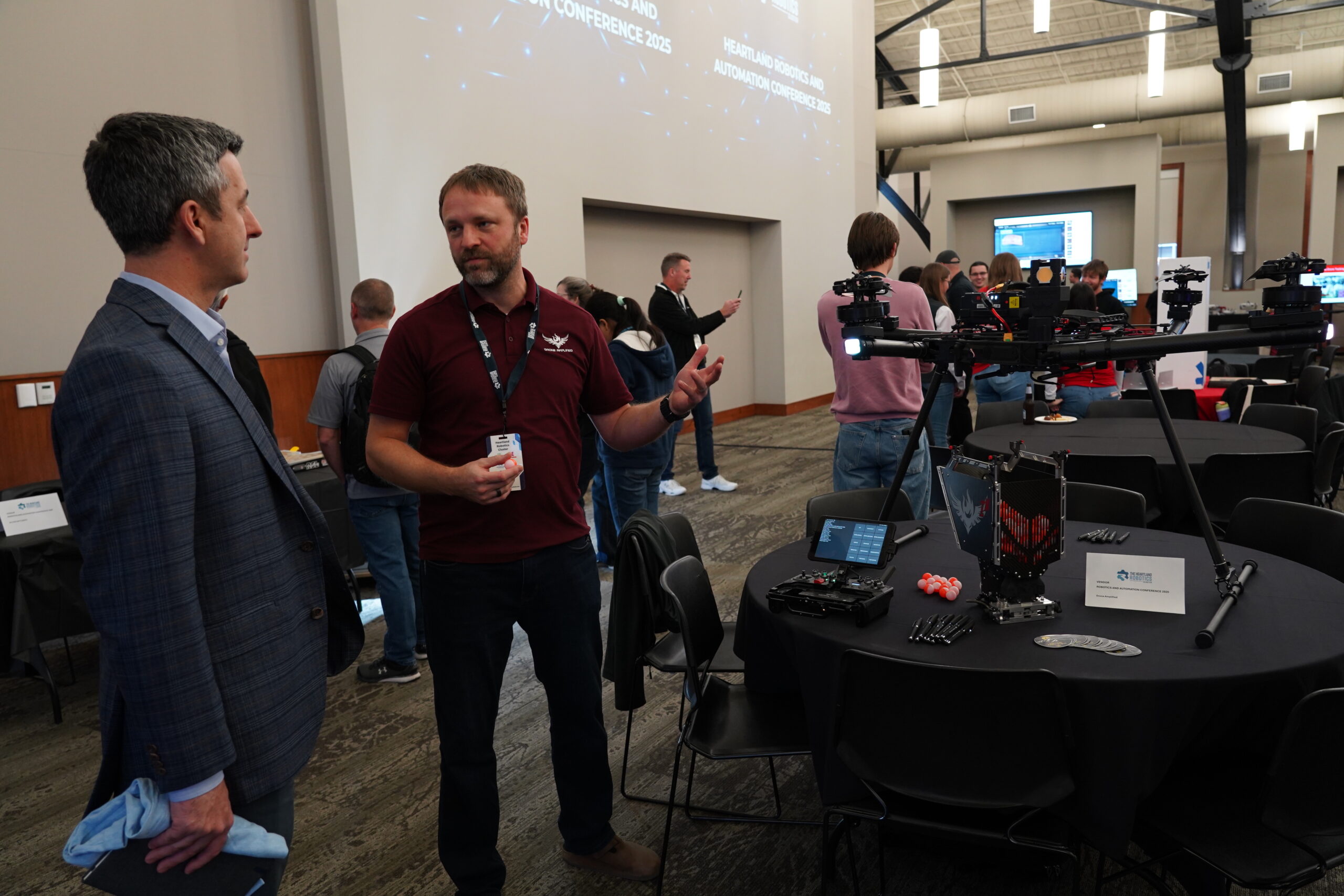Jake Wilkins came up with the idea for Lincoln startup Pik-Up during a trip back home to Ainsworth in north-central Nebraska.
“I got a call from my dad, and he needed me to pick up some planter parts he bought in an online auction and transport them from North Bend to Ainsworth,” said Wilkins, Pik-Up Founder. “I’ve made this trip 50 times in my life, and this was my first time hauling anything.”
Wilkins started to notice how many pickups were driving around with empty beds.
“From that point on I started counting empty pickups and trailers,” he said. “I counted over 300 and probably 70% of them were empty.”
A big logistical challenge emerged as the dots were connected.
“The pain point became more relevant the more I traveled down the interstate,” Wilkins said. “How can we connect these drivers with loads that need to be hauled?”
The business began to take shape in the early fall of 2017.
“I started talking to tire shops and implement dealers, mostly in central Nebraska,” Wilkins said. “They had multiple locations and needed to ship between locations. They could eliminate one truck out of the rotation by using a different source of transportation.”
A web-based platform was created where businesses or individual shippers can post the size, weight, photos and other details of the load they want to ship. Drivers can review all the postings through a computer or mobile device, see if they have the right vehicle, and accept the order.
“Our company and the two parties get an email confirming the order,” Wilkins said. “We use Stripe and Paypal to process payments.”
CTO Jaron Ahmann came on board to flesh out the web front end and create a more robust system.
“He took all the front end stuff we had built before I met him, put the back end stuff in and made it all work,” Wilkins said. “He’s been the backbone of the technical side. I’ve been talking to businesses and connecting things manually.”
Another partnership has helped Pik-Up gain traction with shippers.
“We have a partnership with Kevin Houtwed who manufactures pontoon boats and docks, and ships them across the United States,” Wilkins said. “We help him connect loads, and he helps us with his connections to small business shippers.”
With three locations in two states, Houtwed’s company benefits from Pik-Up’s ability to help identify backhaul loads so that drivers don’t come back empty from a delivery.
“He has three locations, one in Grand Island and two in Texas,” Wilkins said.” We’ve found a lot of backhaul for him.”
Drivers are independent contractors and accept loads based on a per-mile rate established by Pik-Up, which takes a percentage of each transaction.
“We’re not a bidding site,” Wilkins said. “We set price based on a per-loaded-mile basis that is higher for shorter distances. A trailer puts you in a different bracket.”
As a third party, Pik-Up stays clear of regulatory and liability issues by limiting load weights.
“We want to stay in a niche market, not too heavy so that drivers run into regulatory issues,” Wilkins said. “If you stay under 26,000 pounds combined weight, it puts you in a different bracket.”
Wilkins is a junior in college, so balancing school with operating a startup presents some challenges. But he also views the business as part of his education.
“That’s always a question that gets brought up,” he said. “It’s sometimes really tough to let school not get in the way of your education. There’s a lot of things you learn in college that aren’t straight out of a textbook.”
The Engler Agribusiness Entrepreneurship Program at UNL has been a big help.
“Engler has helped me to be able to keep up with school and also run my business,” Wilkins said. “At the end of the day, I don’t want to come out of colleges as a cookie cutter.”
So what has Wilkins learned so far about starting a business?
“Starting a company is not necessarily about what you know, it’s about taking risks at the right times and managing a team in a strategic way,” he said. “We’ve been able to have partnerships with people that trust me and I can trust them. That’s helped a lot in the startup phase.”
––
Rod Armstrong is the Vice President of Fundraising at AIM Institute and a regular contributor to Silicon Prairie News.




